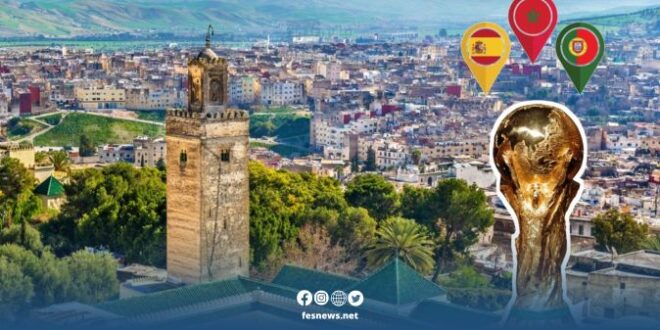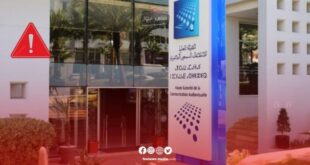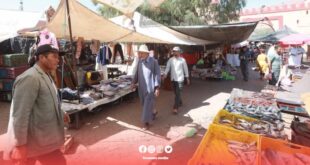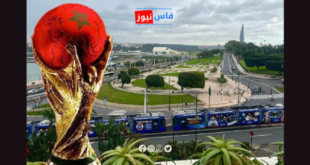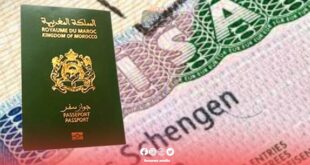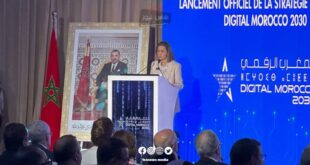South Africa hosted the 2010 World Cup as the first African country to host this global tournament, marking a historic achievement for the African continent. This experience left behind many valuable lessons that Morocco can benefit from in its pursuit of hosting the World Cup in the future. By analyzing this experience, Morocco can draw several strategies and ideas to enhance its organizational capabilities and develop its infrastructure to ensure the success of hosting such a global event.
- Enhancing Infrastructure and Developing Sports Facilities
One of the main challenges South Africa faced during the 2010 World Cup was developing its infrastructure, especially modern stadiums and sports facilities. Although the tournament provided an opportunity to improve many of the country’s sports facilities, the challenge was ensuring the readiness of these stadiums on time.
Morocco can benefit from South Africa’s experience in this area by investing early in building and upgrading stadiums and sports facilities. Morocco should create a long-term plan to improve its infrastructure, including constructing new stadiums, renovating old ones, and developing transport and communication infrastructure to ensure sufficient coverage for the areas hosting matches.
- Focusing on Economic Benefits and Business Opportunities
The 2010 World Cup helped stimulate South Africa’s economy by opening up various business and investment opportunities in sectors such as tourism, hospitality, and transport. However, it’s important that these benefits remain sustainable after the tournament ends.
Therefore, Morocco must devise a long-term plan to capitalize on the economic benefits of hosting the World Cup by developing its tourism sector and enhancing investment in infrastructure. Investments in hotels, tourist facilities, and transportation should be sustainable and aim to attract tourists and investors even after the tournament is over.
- Engaging the Local Community and Training the Workforce
Community involvement and workforce training were key factors that helped South Africa ensure the success of the 2010 World Cup. Thousands of people were trained to work in areas such as hospitality, security, and sports management.
Morocco can learn from this experience by investing time and resources in training the local workforce and providing training opportunities in various fields related to the tournament. Such training will ensure that Morocco’s workforce is ready to tackle the organizational and logistical challenges that come with hosting a major event.
- Boosting International Tourism and Cultural Promotion
The 2010 World Cup was a great opportunity to promote tourism in South Africa on a global scale, as the event attracted visitors from around the world to discover the country’s beauty and diverse culture. Tourism promotion was one of South Africa’s main goals, and they achieved significant success in this regard.
Morocco can enhance this aspect by highlighting its rich and diverse culture as part of its preparations to host the World Cup. Global promotional campaigns can be organized to showcase Morocco’s natural and historical landmarks, as well as its unique culture and hospitality, boosting tourism to the country during and after the tournament.
- Encouraging Environmental Sustainability
One of the biggest challenges South Africa faced was maintaining environmental sustainability during the event, especially with waste management and energy-related issues. However, South Africa worked on making some of its projects part of the environmental legacy of the tournament, such as building eco-friendly stadiums and utilizing renewable energy technologies.
Morocco should pay particular attention to sustainability in its preparations for the 2026 or 2030 World Cup. By using eco-friendly construction techniques and renewable energy in stadiums and other facilities, Morocco can strike a balance between infrastructure development and environmental preservation. The use of such technologies can also contribute to making the tournament more sustainable in the long term.
- Ensuring Security and Safety
Security was one of the major challenges South Africa faced during the 2010 World Cup, requiring detailed planning to ensure the safety of participants and fans.
In this regard, Morocco can benefit from South Africa’s security experience by developing a comprehensive security and safety strategy. This strategy should include coordination among various security agencies, as well as the use of advanced technologies for monitoring and protecting crowded areas and stadiums. Being prepared to deal with emergencies and crises will also be a key element that Morocco should focus on developing to ensure everyone’s safety.
Conclusion
By analyzing South Africa’s experience in hosting the 2010 World Cup, Morocco can learn valuable lessons on how to tackle challenges related to infrastructure, security, sustainability, and economic benefits. By applying these lessons with an emphasis on early preparation and sustainable planning, Morocco will be able to provide a strong foundation for hosting the World Cup in the future and enhance its position in the global sports arena.
Source: Fes News Media
 فاس نيوز ميديا جريدة الكترونية جهوية تعنى بشؤون و أخبار جهة فاس مكناس – متجددة على مدار الساعة
فاس نيوز ميديا جريدة الكترونية جهوية تعنى بشؤون و أخبار جهة فاس مكناس – متجددة على مدار الساعة

